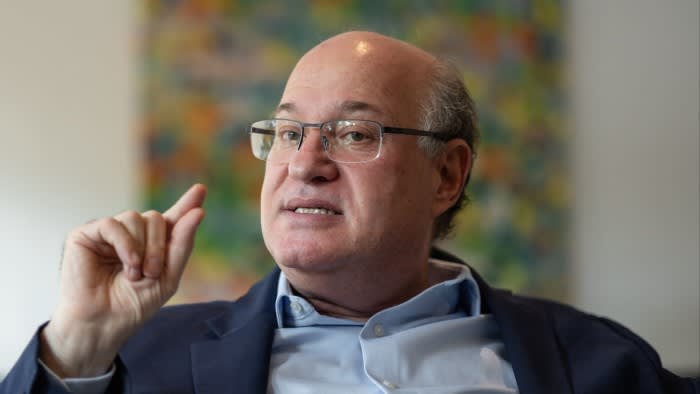Unlock the Editor’s Digest for free
Roula Khalaf, Editor of the FT, selects her favourite stories in this weekly newsletter.
Latin America’s biggest development bank will pay a group of private investors to take on some of the risk of losses on its loans, as multilateral lenders turn to securitisation to make scarce capital stretch further.
The transaction insures nearly $1bn of lending by the Inter-American Development Bank, which invests in Latin America and the Caribbean. Through a so-called synthetic securitisation, the asset manager Newmarket Capital has taken up to $70mn of default risk.
“The traditional buy-and-hold model of the multilaterals is obsolete and unscalable,” said James Scriven, chief executive of IDB Invest, the bank’s private-sector arm that carried out the transaction. He said the deal would make possible $500mn of new lending.
By offloading some default risk to private investors, IDB Invest has reduced some of the capital it has to hold against the loans. It comes as the World Bank develops its own securitisation programme.
At the UN’s COP28 climate summit in Dubai last year, president Ajay Banga said one of the World Bank’s core goals was to build a “securitisable asset class in these kinds of investments, where large pension funds, large players like BlackRock will find a very attractive place to put billions to work”.
Governments have urged development banks to make more use of capital markets. A G20 report last year recommended more securitisation as part of a set of tools to boost lending capacity by $200bn over the next decade.
IDB shareholders earlier this year approved a capital increase of $3.5bn. Together with the Newmarket deal, that money represents “a change in our business model”, Scriven argued, towards originating and pooling assets for investors that might not otherwise notice Latin America.
IDB had also created a new investor relations and asset sharing department, he added, “because as important as our origination side is contact with investors, understanding what they want”.
Newmarket, a Philadelphia-based alternative asset manager, was founded in 2020 by veterans of the hedge fund Mariner Investment Group, which led a similar deal with the African Development Bank in 2018.
Aaron Barnes, a founding director at Newmarket, said: “The new reality is that governments are less open wallet when it comes to providing new funds to multilaterals, and therefore multilaterals have to find new ways to recycle the capital they already have.”
Scriven predicted that the risk transfer strategy would allow the bank to double its annual regional investment, and to raise capital mobilisation, a measure of how much private sector investment is spurred by each public dollar, to a ratio of 1:2.
“Our region just has very few investment-grade assets. So there is a supply and demand gap between the assets that we have in emerging markets that, for the most part, are sub investment grade, and the appetite of these trillions of dollars,” Scriven said. He added that the risk transfer deal would allow IDB Invest to lend to riskier companies.
IDB Invest would shoulder the first 3 per cent of any losses on the loan portfolio. Newmarket would take losses on the next 3 per cent to 10 per cent.
https://www.ft.com/content/339b8ed2-b201-424b-837d-5b7fc9e74d41


